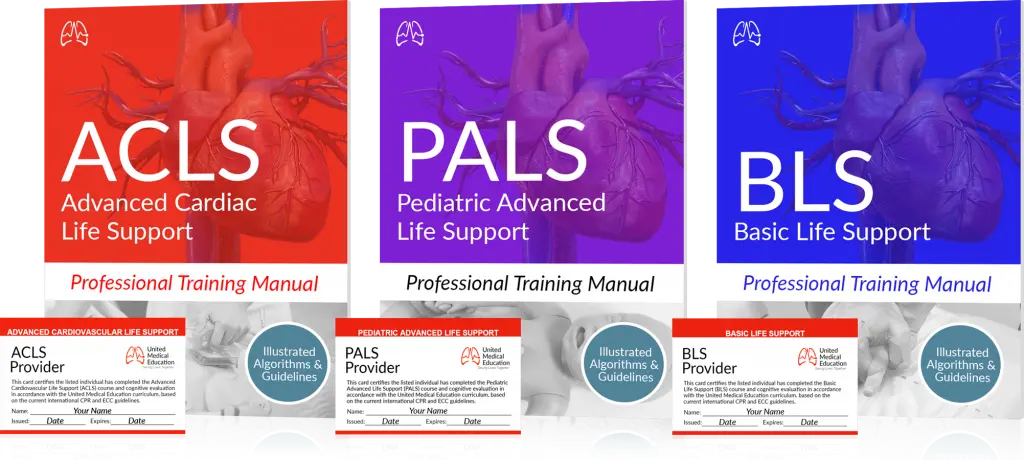What does Pediatric Advanced Life Support have to do with your next flight? More than you might think.
Ever consider the full scope of responsibilities airline staff carry on their shoulders? Alongside ensuring your flight is comfortable, they’re also trained to respond to potential emergencies at cruising altitude. Among these critical skills is Pediatric Advanced Life Support, or PALS certification online, an increasingly essential certification for all those in the aviation industry. Let’s explore why PALS certification, often regarded as a medical necessity, has become so important for those who pilot our skies.
The Crucial Role of Airline Staff in Medical Emergencies
Navigating the airspace every day are countless flights, creating a global network connecting hundreds of thousands of individuals. Within this bustling realm of air travel, medical emergencies, unfortunately, are not rare events. They range from sudden cardiac incidents to unanticipated labor or unexpected allergic reactions. The scope of potential emergencies is as diverse as the passengers themselves. In these circumstances, high above ground level, the closest medical facility could be several hours away, and the responsibility of immediate care falls onto the shoulders of the airline staff.
In such challenging situations, crew members with Pediatric Advanced Life Support (PALS) certification can effectively turn the tide. Their specialized training equips them with more than just the capacity to offer consolation and comfort. It empowers them to provide critical, and in many instances, life-saving interventions. This is particularly significant when it comes to providing medical aid to younger passengers who may require specific pediatric emergency care. In these high-pressure scenarios, PALS-certified crew members step in as the much-needed lifeline, reducing the risks and ensuring passenger safety.
PALS Certification: An Unseen Superpower for Airline Staff
What exactly does PALS certification entail? This program was developed to provide a thorough understanding of the procedures necessary to manage critically ill children and infants. With this knowledge, flight attendants and other airline staff can swiftly identify and respond to emergencies related to cardiac and respiratory distress, thereby saving lives mid-air.
Why is this training particularly relevant for airline staff? There are two significant reasons: Firstly, flights often carry young passengers, and secondly, treating children isn’t the same as treating adults. Their bodies are different, and they need specialized care in emergencies. PALS certification ensures that flight crew members are well-prepared to handle these unique situations.
The Merits of PALS Training in the Confined Space of an Aircraft
Administering medical aid in the confined space of an airplane is vastly different from doing so in a hospital or even on the ground. The enclosed environment, limited resources, and pressure of time create a challenging dynamic for emergency response.
PALS certification empowers airline staff with the skills to steer these constraints effectively. It trains them to administer critical care, even within the limited space of a plane cabin, transforming potential roadblocks into opportunities for saving lives.
Learning from life: Instances of PALS Certification Making a Critical Difference
Understanding the profound significance of PALS training requires a deep dive into real-life scenarios where it has been instrumental in navigating in-flight emergencies.
I was aboard a cross-country flight when a teenager inadvertently consumed peanuts hidden in his in-flight meal. The ensuing allergic reaction was severe, but his EpiPen was stowed away in checked baggage. I was several seats away and as i tried to reach out to help, a PALS-certified crew member stepped in, swiftly accessing the emergency medical kit on board, administering an epinephrine injection, and stabilizing the young passenger. Such incidents bring into stark relief the vital role of PALS training and how it can quite literally be a lifesaver.
On another occasion, my mom was on a Christmas Eve flight when a little girl experienced a minor tumble, triggering a flood of tears. Armed with PALS training, the air hostess understood that though her physical injury was minor, her emotional distress was important. She carefully bandaged the girl’s grazed knee, offered her a comforting cookie, and shared an engaging story to calm her. By the end of the journey, her tears had transformed into smiles, and she gifted the hostess with a warm hug. This interaction served as a gentle reminder that PALS training isn’t only about managing serious medical crises but also about offering comfort to tender hearts.
A careful examination of these incidents reveals the invaluable role of PALS training in real-life crises, particularly those involving children. It highlights the fact that having medical supplies on board isn’t enough; crew members also need to be skilled in using them effectively, particularly when it comes to ensuring the safety and well-being of young passengers.
Challenging the challenges: Making PALS Certification More Accessible for Airline Staff
Acquiring PALS certification, while undeniably valuable, does not always unfold as a smooth journey. Several obstacles such as limitations of time, the associated cost, and access to high-quality training often emerge as significant roadblocks in this path.
Recognizing these challenges, we at United Medical Education have undertaken initiatives aimed at lessening these impediments. We extend an opportunity for free PALS training to those who choose to register for a complimentary student account. Furthermore, we also offer free practice exams, preparing students to successfully ace the PALS final examination. Our vision is to make the PALS certification process increasingly accessible for airline staff. The objective is to enable them to be thoroughly equipped and ready to respond proficiently when emergencies arise mid-flight. By minimizing these barriers, we aim to nurture a community of airline staff who are not just well-trained but also well-prepared, thereby adding an essential layer of safety to air travel.
Conclusion
So, why should airline staff consider becoming PALS certified? Well, the answer lies in the potential emergencies that can occur in the air. As we navigate the sky, unforeseen situations are not only a possibility but also an inevitability. When emergencies arise, PALS-certified crew members transform into critical caregivers amidst the clouds.
As we look towards tomorrow, it’s not something we merely approach; it’s something we actively mold. It’s time to shape a future where every member of a flight crew holds a PALS certification, turning our aircraft into safer environments, particularly for the little ones on board. It’s high time for airlines to invest in PALS training for their staff. As we unite in this endeavor, we can elevate the level of in-flight medical care, promising skies that are not just inviting but immensely safer.








